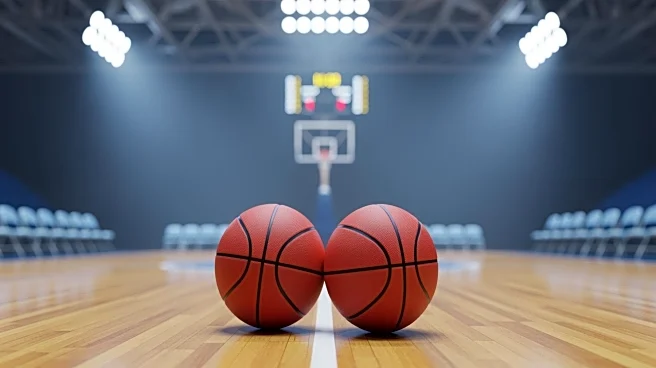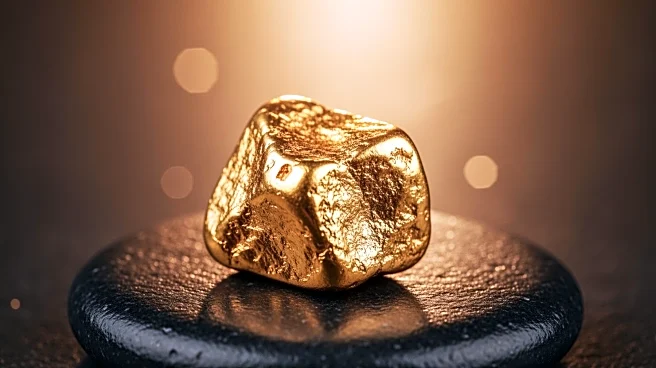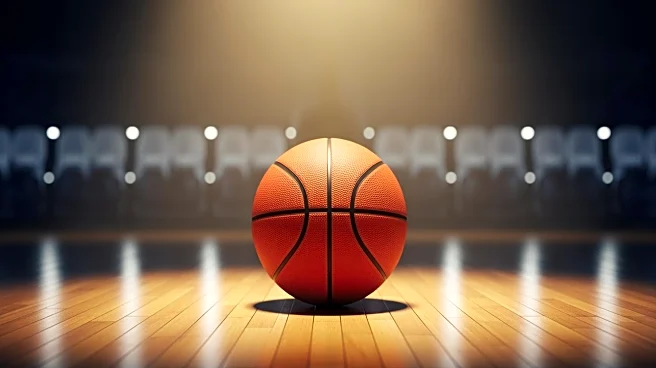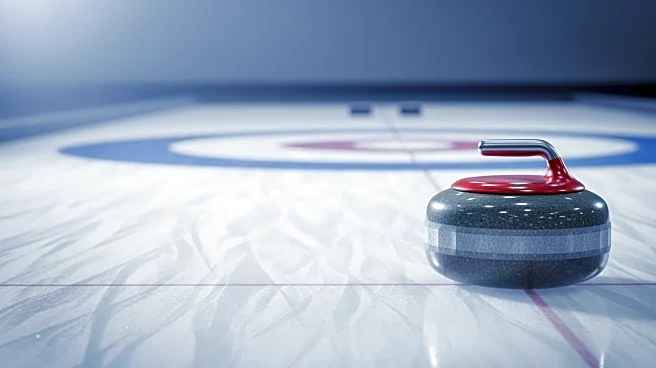What's Happening?
Indiana Fever star Sophie Cunningham has raised questions about the absence of postgame handshakes in the WNBA, a practice that is common in the NBA. During an episode of her podcast 'Show Me Something,'
Cunningham expressed her confusion over why WNBA players no longer engage in handshakes after games, attributing the change to the COVID-19 pandemic. She noted that while players do acknowledge each other before games, the postgame ritual seems to have disappeared. Cunningham's co-host suggested that the competitive nature of the league might contribute to the lack of postgame camaraderie, as players might not genuinely mean the gestures. Despite the absence of formal handshakes, players do engage in brief exchanges and conversations after games.
Why It's Important?
The discussion initiated by Sophie Cunningham highlights a cultural difference between the NBA and WNBA, potentially affecting perceptions of sportsmanship and camaraderie in professional women's basketball. The absence of postgame handshakes could be seen as a reflection of the competitive intensity within the league, possibly influencing public and fan perceptions of the WNBA. This cultural aspect might also impact the league's image and its efforts to differentiate itself from the NBA. The conversation around this topic could lead to broader discussions on sportsmanship and the evolution of traditions in professional sports.
What's Next?
While there is no immediate indication that postgame handshakes will return to the WNBA, the conversation sparked by Cunningham could lead to discussions among players and league officials about the potential reintroduction of this tradition. Stakeholders might consider the implications of such a change on the league's culture and public image. Additionally, the topic could prompt further exploration of other traditions and practices within the WNBA that differentiate it from the NBA.
Beyond the Headlines
The absence of postgame handshakes in the WNBA might reflect broader societal shifts in how sportsmanship is perceived and practiced. The change could be indicative of evolving norms in professional sports, where competitive intensity and personal rivalries might overshadow traditional gestures of goodwill. This development could also raise questions about the role of rituals in fostering community and mutual respect among athletes.









